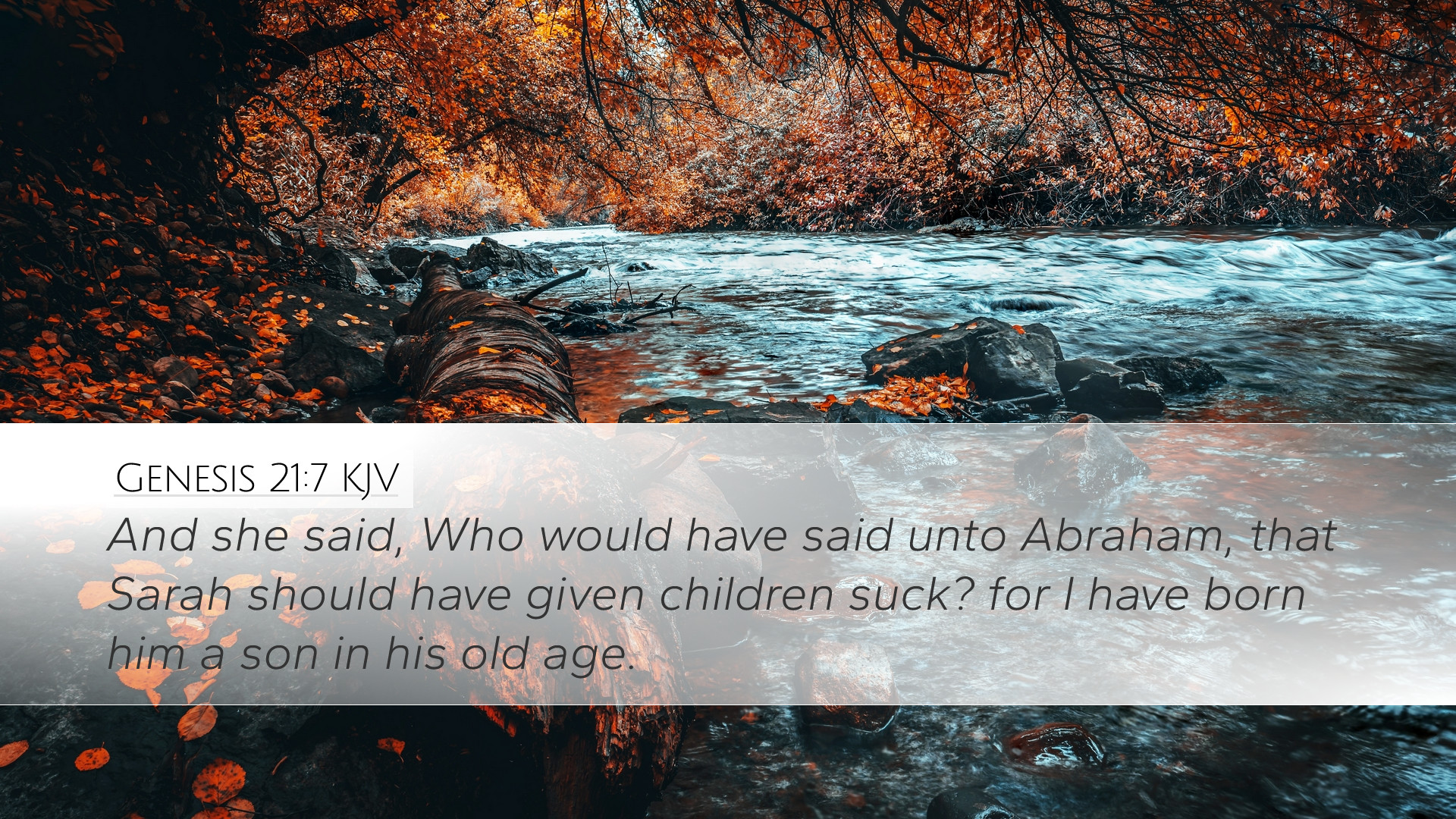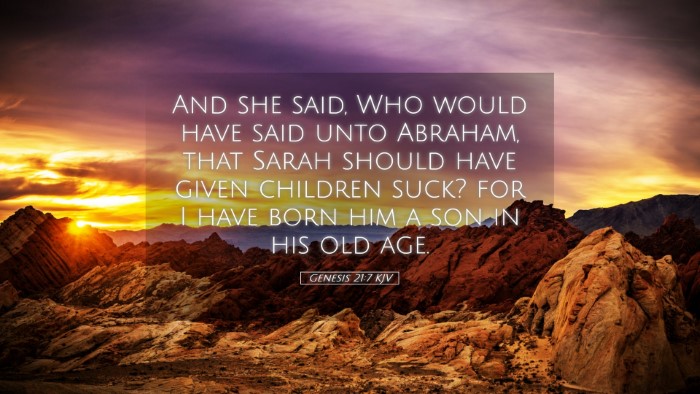Commentary on Genesis 21:7
Genesis 21:7 states: "And she said, Who would have said unto Abraham, that Sarah should have given children suck? for I have borne him a son in his old age." This verse reflects the miraculous nature of Isaac's birth and serves as a profound statement on God's faithfulness to His promises.
Context and Background
The events surrounding Genesis 21 highlight God's covenant with Abraham. This chapter marks the culmination of God's promises made to Abraham concerning his lineage and the future nation that would arise from him.
Insights from Matthew Henry
Matthew Henry underscores the miraculous essence of Isaac's birth. He notes the irony in Sarah's incredulity, which turns to joy as she reflects on the fulfillment of God's promise. Henry emphasizes that the birth of Isaac represents not just the continuation of Abraham's family but God's unwavering commitment to His covenantal relationship with humanity. Furthermore, he highlights that Sarah's exclamation showcases her amazement and the shift from doubt to faith:
- The shift from disbelief to joy: Henry observes that Sarah's laughter was initially one of skepticism, which transformed into joy upon witnessing God's faithfulness.
- Theological implications: The birth of Isaac serves as a precursor to the unfolding narrative of salvation history. It illustrates how God brings life from barrenness.
Insights from Albert Barnes
Albert Barnes provides a detailed analysis of Sarah's sentiments and the cultural significance of her statement. He reflects on the roles of women in ancient Israelite society and the honor associated with childbearing:
- The joy of motherhood: Barnes emphasizes that Sarah's joy and disbelief highlight the societal value placed on children, particularly sons, in Abraham's culture.
- Divine intervention: He enhances the reader's understanding of God's intervention in natural processes, marking Isaac's birth as a key event facilitated by divine will rather than human capability.
Insights from Adam Clarke
Adam Clarke offers theological reflections specific to God's nature and the miracle of Isaac's birth. He takes a broader view, encompassing the narrative's significance in portraying God's sovereignty:
- The theme of the impossible made possible: Clarke notes that Sarah’s incredulity accentuates God's ability to transcend natural limits—a consistent theme throughout scripture.
- Faith in action: The commentary suggests that Sarah's experience encourages believers to trust God’s promises, no matter how improbable they may seem.
Theological Themes
The narrative surrounding Isaac's birth resonates with several vital theological themes:
- The faithfulness of God: God remained faithful to His promise despite human doubts and biological limitations.
- The joy of fulfillment: The transformation of doubt into joy speaks to the broader victory of faith over fear and skepticism.
- The significance of covenants: Isaac’s birth further solidifies the Abrahamic covenant and anticipates the eventual covenant of grace through Christ.
Application for Today
For pastors, students, theologians, and Bible scholars, the insights derived from Genesis 21:7 offer substantial applications:
- Encouragement in uncertainty: The narrative encourages believers to maintain faith when circumstances seem impossible.
- Understanding God's timing: Reflecting on the divine timing in Abraham and Sarah's lives fosters a deeper trust in God's plan for each individual.
- Building community narratives: The story invites contemporary faith communities to share personal testimonies of God's faithfulness, thereby building collective faith.
Conclusion
In conclusion, Genesis 21:7 serves as a pivotal moment that encapsulates God’s promises to Abraham and Sarah. By marrying insights from Matthew Henry, Albert Barnes, and Adam Clarke, we glean a comprehensive understanding of the miraculous nature of Isaac’s birth, the themes of faith and fulfillment, and the theological implications that extend to both ancient and contemporary audiences.


